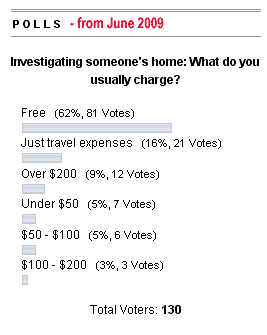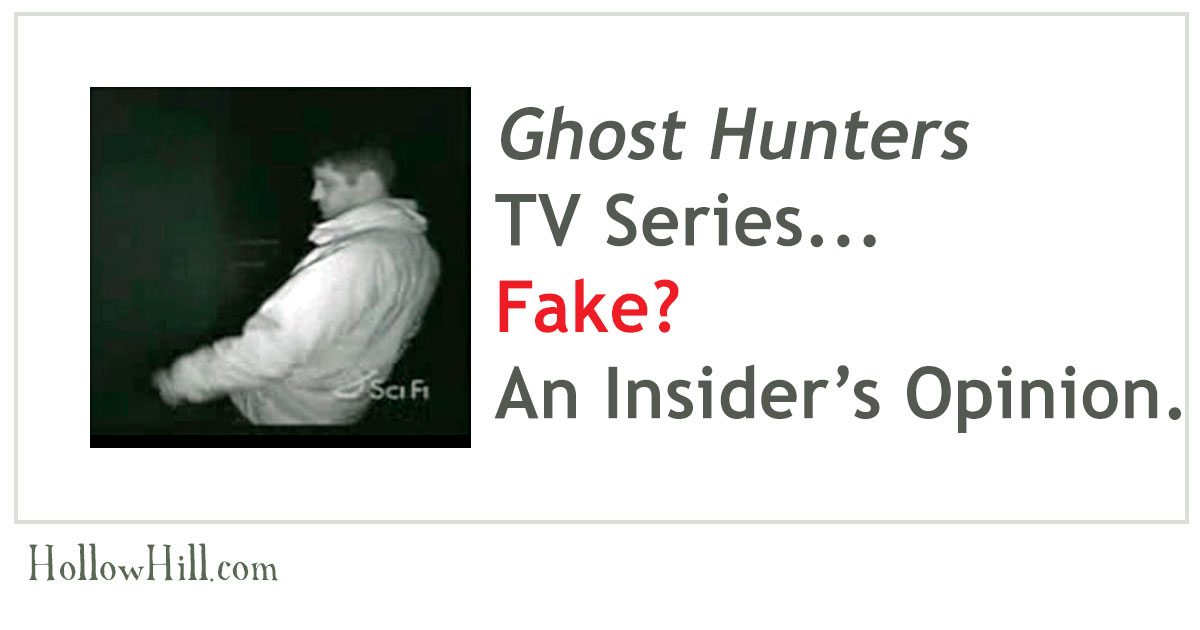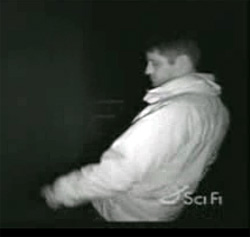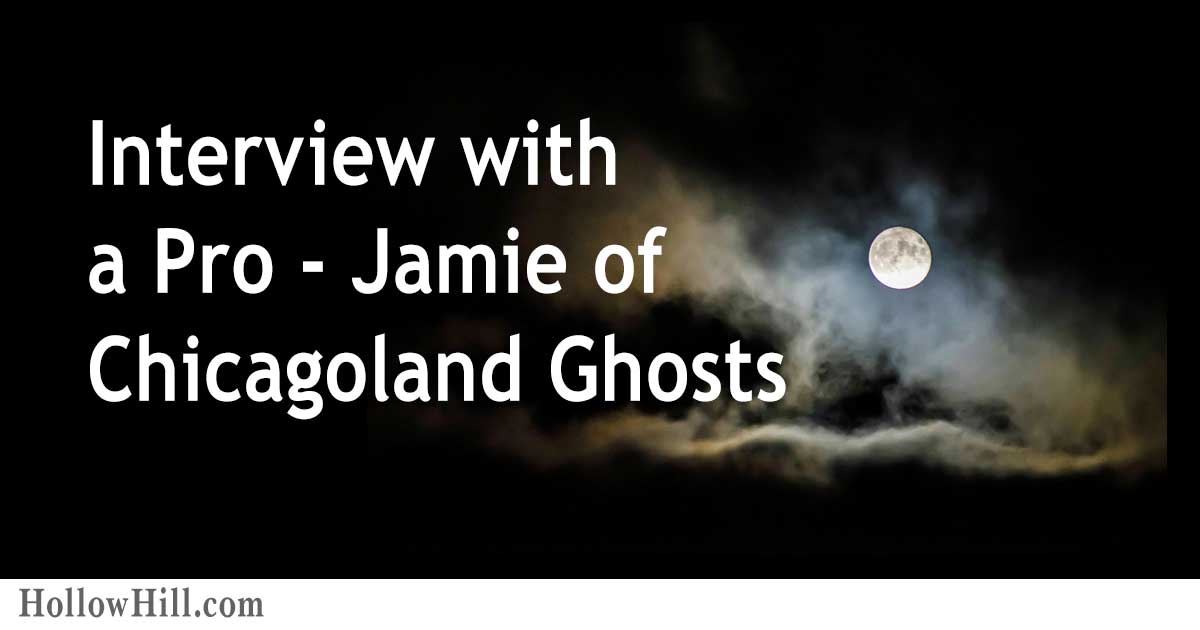How much do ghost hunters really charge?
Here’s what you need to know
- Most investigators don’t charge residents who are worried that their home is haunted.
- However, many ghost-hunting teams charge businesses—including hotels and restaurants—that want to advertise that they’re haunted.
Between those two extremes, I think it’s reasonable to expect a client to cover your travel expenses. That should include meals, especially if you’re investigating overnight.
If sleeping accommodations aren’t available at the site, investigators should be offered local lodging—perhaps at a Fairfield Inn or a similar budget hotel.
No investigator should be expected to work late at night, and then drive many miles – especially on an empty stomach – back to his, her, or their home.
What actual ghost hunters said in 2009
In June 2009, when ghosts attracted peak interest, I conducted a poll.
That’s when serious ghost-hunting investigations were relatively new, and ghosts were trending in the news.
I asked readers how much they charged clients, and these were the results:
 In 2009, in real-life conversations, most agreed with the poll results: They didn’t charge the client anything at all.
In 2009, in real-life conversations, most agreed with the poll results: They didn’t charge the client anything at all.
Or – if travel expenses were involved – they asked the client to pay for gas and to arrange lodging.
Investigators who charged over $200 were also very forthcoming. Back then, the figure that I heard most often was $350 plus expenses. That increased if the team included more than three people.
Four-figure amounts were not rare when the team included professionals and six or more experienced investigators.
2021 update: In recent years, this has changed. Most ghost-hunting teams do not charge anxious clients to investigate homes. But, teams are more cautious about which locations to investigate.
Ghost hunting seems to be trending again, which may create fresh interest in having professionals investigate a home or business. So, we might see a return to 2009 fee levels—or not.
Supply and demand?
Client fees and investigation services seem difficult to discuss, even among professionals who otherwise agree on almost everything.
Some say, “You get what you pay for.”
Others insist that investigations are an essential part of our research. So, we shouldn’t charge anything.
I think the poll speaks for itself, to understand the financial side of investigations.
If someone is troubled by an apparent haunting in their home, it’s probably easy to find a team – especially amateurs, and those looking to build their portfolio of investigations – to conduct the research free of charge.
If someone wants to hire a professional team, the fees are likely to be $200+ for that service.
My policy? Ask for travel expenses.
When I investigate private homes—a rare occurrence in recent years—I expect the homeowner to cover my travel expenses.
If the site uses my research to improve its business (such as a restaurant or hotel that wants to claim it has ghosts), a fee may be involved. It depends on whether I’m intrigued by the location.
A site like the Myrtles Plantation or Tudor World (the Falstaff Experience)…? As long as my expenses are covered, I’m delighted to investigate. My past experiences at both of them were memorable.
When I always say no.
If a site has health risks, such as a building with a recent rat infestation, or asbestos and black mold, I’ll say no.
No exceptions.
Also, I won’t go into dangerous neighborhoods, day or night.
Consider the client.
When homeowners are frantic for help, I usually look for ways to reduce or eliminate their costs.
I know that – by the time a homeowner or tenant contacts ghost hunters – they may have had medical bills or stress has taken a toll. Usually, they’re not in a financial position to pay professional investigators.
For ghost-hunting teams
Carefully consider investigation requests. Be especially cautious if a site is old and badly maintained—or if it has (or might have) poltergeist activity.
Also, be sure you’re insured against damages the client may claim.
Remember: Poltergeists rarely respect costly vases, or the personal and replacement value of china that’s been in the family for seven generations.
Get everything in writing, ahead of time. If travel expenses will be covered, make sure you receive them in advance.
If it’s a commercial site (hotel or restaurant) ask what they expect from you, such as evidence – audio or video – or a certificate they can display. The site owner may also want quotes or reviews they can use in their advertising.
Be skeptical. I’m not saying that all victims of haunted sites are exaggerating, but some are, or mental health issues may be involved.
This is important: In recent years, I’ve seen an increase in demonic activity at some sites. So, be very sure the potential client isn’t describing something dangerous.
Ghosts and demons are two different categories.
Most ghost-hunting teams – including my own – are not skilled demonologists.
If a site might be troubled by demons or malicious entities, refer those clients to a local priest, minister, or skilled (and trusted) demonologist.
A warning for homeowners, tenants, and business owners
Check references!
Some people claim they’ve been ghost-hunting for years. Ask them for evidence of their expertise in the field, and double-check it.
Learn the best – and worst – that’s said about researchers you’re considering.
Be sure the investigation is worth the cost
If you’re a home or business owner, be sure you’re hiring a competent team.
Then, be prepared for the truth.
Your site might not be haunted. It may just need repairs.
From my experience, about 80% of haunted buildings can be debunked. The usual problems:
- Infrasound
- Carbon monoxide from local traffic and cloud inversions
- Bad electrical wiring
- Carpentry or foundation problems
- Drafts and ventilation issues
- Plumbing and heating noises
- Animals, especially rodents, in the walls
Also, ghost hunting is not a field where haggling is the norm.
If you respect the team enough to want their opinions, pay their standard fees.
The best investigators will tell you whether or not they think your site is haunted. They’ll also advise you about what you can (and can’t) do about the ghosts.
Investigating? Here’s what to do.
If you’re part of an investigation team, be honest about your expertise. Avoid mimicking what you’ve seen on TV. Listen to the client. Note everything.
- Examine the site during the day to debunk as much as possible. That includes checking for level floors, bad wiring (elevated EMF), normal drafts, and so on.
- Investigate during the time of day when the site has the most paranormal activity. (That’s not always after dark.)
- Then, return to the site in the daytime, for one final attempt to debunk the phenomena.
- Advise the client on what you found, what you didn’t find, your theories, and what they can do next. (Don’t just abandon them if the site seems haunted to you, too.)
If you’re not willing to do all of that for each client, with expenses covered (if necessary), have an honest conversation with them.
Perhaps a scaled-back investigation is enough.
Or, maybe another team might be better suited for the job.



 Starting the first of November, 2008, the emails poured in. Each of them asked me questions like those.
Starting the first of November, 2008, the emails poured in. Each of them asked me questions like those.
 Parapsychology Degrees – or a degree in Paranormal Studies – can open the door to many ghost-hunting opportunities.
Parapsychology Degrees – or a degree in Paranormal Studies – can open the door to many ghost-hunting opportunities.